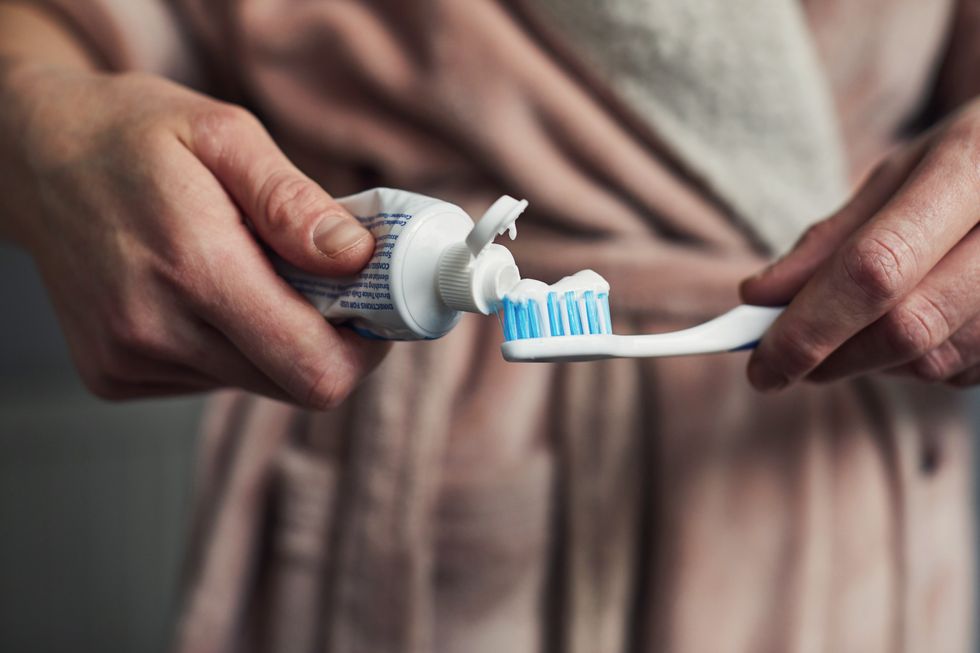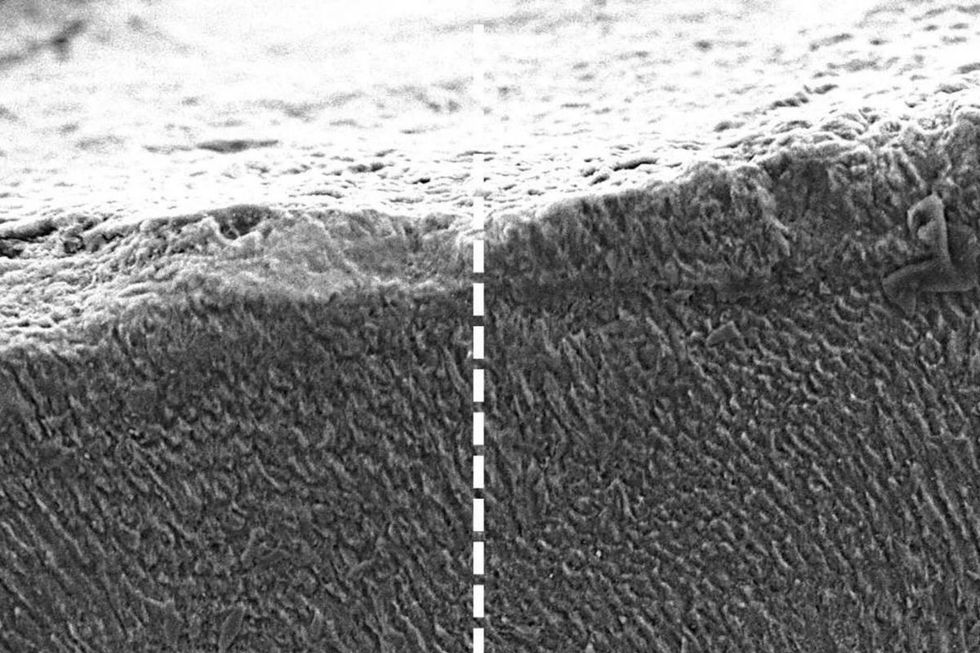'This is a game changer': Toothpaste made from human hair could repair tooth enamel, scientists say

WATCH NOW: Government’s plan ‘won't rebuild NHS dentistry’ says shadow health secretary
|GBN

The keratin-based solution has demonstrated the capacity to halt erosion entirely
Don't Miss
Most Read
Latest
Researchers at King's College London have made a remarkable discovery that could transform dental care: keratin extracted from hair possesses the ability to mend damaged teeth and halt the progression of early-stage tooth decay.
The protein, commonly found in hair, skin and wool, has been shown to create a protective barrier on teeth that replicates the properties of natural enamel when combined with minerals present in saliva.
This innovative approach could become available to consumers as toothpaste or professional gel treatments within the next two to three years, offering a sustainable substitute for conventional fluoride-based dental products.
The mechanism behind this dental innovation involves keratin forming a protective layer when it encounters salivary minerals, effectively recreating the structure and functionality of tooth enamel.

Keratin forms a protective layer when it encounters salivary minerals
|GETTY
Unlike existing fluoride treatments that merely decelerate enamel deterioration, the keratin-based solution has demonstrated the capacity to halt erosion entirely.
The treatment addresses a fundamental challenge in dentistry: the inability of tooth enamel to regenerate naturally after damage occurs.
Minor imperfections and microscopic fractures in teeth can potentially self-repair through this process, preventing more serious dental issues from developing.
This represents a significant advancement over current preventive measures, which rely heavily on fluoride in toothpaste and drinking water supplies.
"We think this is a game changer, an industry-mover to introduce keratin as an actual product within our daily use to protect and heal your tooth enamel without even realising," Dr Sherif Elsharkawy, from King's Faculty of Dentistry, Oral & Craniofacial Sciences, told Sky News.
The lead researcher emphasised that the treatment works automatically: "If you have a micro crack or a very small defect, it would heal itself without you even realising."
Sara Gamea, PhD researcher at King's College London and the study's primary author, described the innovation as offering "a transformative alternative to current dental treatments".
The treatment could take two forms: a daily-use toothpaste or a professionally administered gel coating for severe cases, applied similarly to nail polish.
LATEST DEVELOPMENTS

Tooth enamel before and after Keratin
|KING'S COLLEGE
While the experimental products utilised wool-derived keratin, Dr Elsharkawy suggested future possibilities might include extracting the protein from individuals' own hair.
Currently, the research team favours sheep's wool as their keratin source, citing its abundance, sustainability credentials and status as an agricultural byproduct that benefits farmers.
The finished toothpaste will maintain familiar characteristics of conventional products, featuring mint flavouring and a foaming consistency while incorporating sufficient keratin for everyday application.
"The aim is that we want this to be affordable and to reach the public," Dr Elsharkawy stated, adding: "We don't think this is going to be a premium product - we would like to get everyone to be able to access it."










